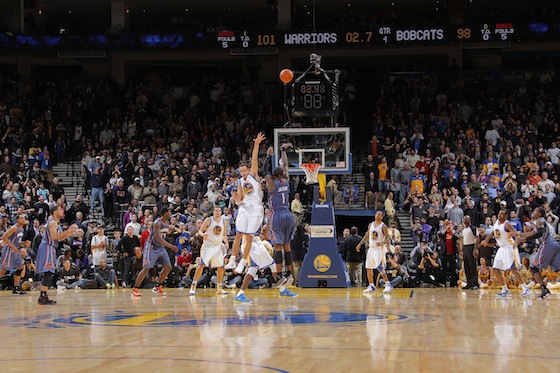
The panic button. While it actually doesn’t exist per say, it’s one that we have all encountered. Whether it be an advertisement that didn’t turn out the way we wanted or putting together a team that didn’t perform like expected, the panic button symbolizes a need for help and in some cases, realization of failure. While common sense says that we should automatically hit it when we are in the appropriate situations, too often do we tell ourselves that we can fix it or resolve it on our own.
The problem with not hitting the “panic button” when necessary is that should one fail in fixing the problem, the problem just gets worse and sometimes to the point of a total loss.
In sports, the panic button is often driven business. For example, a General Manager whose team is losing every game would be expected to be replaced, but if they are selling out every game then there is a reason to keep them. Although this should be considered a paradox, it is quite common in sports.
The Fans’ Perspective
From a fans point of view, the panic button is an emotional response. When their team starts losing, their first instinct is to hit the button and ask for help. A great example is to listen to sports talk radio when the home team starts losing. One of the most common remarks that you will hear from fans is how the team should trade for X and give up nothing or give up very little. While we know where the fan is coming from, ideas such as an outrageous trade or move often spread like wildfire amongst fans and can create a domino effect in which everyone believes that the team should make a trade. The biggest problem here is that although a fan base might feel that it’s time to the panic button, teams have a different motive and point of view.
The Team’s Perspective
As fore mentioned, the panic is often driven by business. For sports teams, opportunity cost determines if it’s time to hit the panic button. For example, a team that is losing, but putting fans in stands needs to weight he opportunity cost of what it would take to help the team start winning. If helping the team win 5 extra games means bringing in a player at a cost of an additional $3 million on the books, the team then needs to consider what the value of each win is to them. Without getting to far into the economics of sports, for the team to hit the panic button it is more complex than an emotional response.
—
Earlier, we brought up the problem of not hitting the “panic button” when we should. Revisiting it, although the fans and teams perspectives were both explained separately, perhaps the best way of even knowing of when to hit the “panic button” is through a combination of both perspectives.
###


[…] This post was mentioned on Twitter by Lewis Howes, Joseph Yi and Joseph Yi, Career Athletes. Career Athletes said: RT @LewisHowes: When To Hit The Panic Button In Sports http://t.co/1OMi0mQ […]